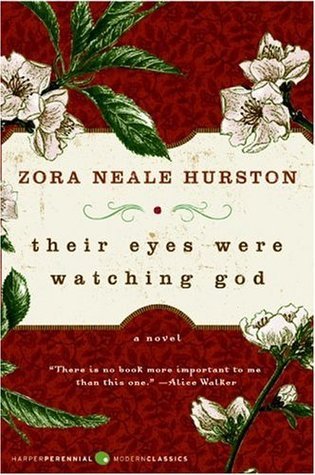Foreword by Mary Helen Washington
byForeword by Mary Helen Washington offers a reflection on the significant transformation in how Zora Neale Hurston’s Their Eyes Were Watching God has been perceived since its original publication in 1937. Upon its release, the novel struggled to find its place in the literary world, especially among critics who emphasized works that focused on the hardships and suffering of African Americans. Prominent male critics like Richard Wright dismissed Hurston’s work, calling it superficial and accusing it of presenting an overly romanticized view of black life. At a time when stories about racial oppression and injustice were prioritized, Hurston’s exploration of a black woman’s personal journey toward self-realization was not seen as significant. These early critiques left Hurston’s novel overshadowed, relegated to the margins of literary history, despite its unique and rich portrayal of a woman’s emotional and spiritual evolution.
However, by the 1980s, the novel had undergone a remarkable revival, coinciding with the 50th anniversary of its publication. The resurgence of interest in Hurston’s work was greatly aided by the academic growth of Black Studies programs, which helped introduce her writings to a new generation of readers and scholars. The University of Illinois Press played a key role in this revival, marketing Their Eyes Were Watching God as a “bestseller” and recognizing Hurston as an essential figure in African American literature. Female readers, particularly African American women, found themselves drawn to Janie Crawford’s journey of self-discovery. Her quest for independence, self-love, and emotional freedom resonated deeply, particularly with women who had long been absent from literary narratives in ways that gave them agency and voice. Janie, with her defiance of gender roles and societal expectations, became a symbol of empowerment, offering a vision of women’s autonomy that had been largely ignored in mainstream literary traditions. This new feminist reading of the novel shed light on the importance of Janie’s journey as more than a romantic story, framing it as a powerful narrative about self-empowerment and personal fulfillment.
The resurgence of Hurston’s work was further propelled by the advocacy of figures like Alice Walker, who worked tirelessly to secure Hurston’s place in literary history. Walker, among other supporters, brought attention to Hurston’s life and work, ensuring that she received the recognition she deserved after being overlooked for so long. By the 1970s, Their Eyes Were Watching God had become a staple in university courses and had been integrated into the curriculum for Black literature studies. As critical discussions of the novel developed, scholars began to emphasize the feminist dimensions of Hurston’s writing, examining Janie’s voice and the exploration of female autonomy in the text. The feminist interpretation of the novel highlighted the ways in which Hurston critiqued the roles assigned to women in a patriarchal society, offering a nuanced exploration of women’s silence, self-expression, and empowerment. Even as the novel gained recognition, it still generated discussions around Janie’s agency, particularly in her relationships with men like Tea Cake. While these debates continue, they underscore the novel’s complexity and the depth of Hurston’s work. Their Eyes Were Watching God is celebrated for its multifaceted portrayal of identity, race, gender, and power, offering insight into the struggle for self-empowerment in a world that often tries to suppress individual desires and voices.
Today, Their Eyes Were Watching God is widely considered a classic of American literature, and its influence continues to grow with each passing year. Its exploration of Janie’s journey of self-discovery, set against the backdrop of African American folk traditions and a changing society, remains a powerful and relevant story for contemporary readers. The novel’s thematic richness allows it to be read through various lenses, from feminist and postcolonial readings to critiques of race, gender, and societal norms. The legacy of Hurston’s work continues to thrive, inspiring new generations of readers and scholars to examine its layers of meaning, relevance, and timeless themes. Through the sustained academic and cultural recognition of Their Eyes Were Watching God, Hurston’s writing remains a vital and essential part of the conversation on race, gender, identity, and the pursuit of personal freedom. Her portrayal of Janie, as a woman who challenges societal norms and sets out on an adventure toward self-empowerment, continues to resonate as a deeply moving and transformative narrative.

